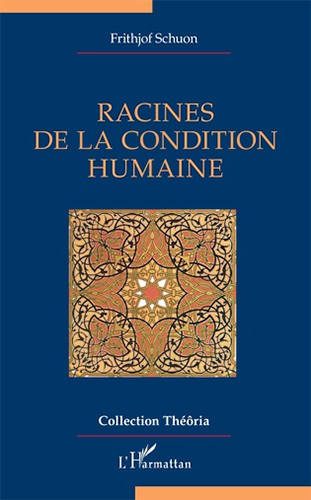
Frithjof Schuon Archive

Articles
| Titel | Zusammenfassung | Source | Article Language | Download | hf:tax:article_subject |
|---|---|---|---|---|---|
| Travel Meditations | Many questions arise simply because man lets himself be enticed into the domain where questions lie, instead of keeping firmly to the domain of certainty, If a man is confused by something, he should first of all come back to the certainty that it is not this world as such which is important, but the next world, and above all that God is Reality; and he should say to himself: in the face of this truth, which in principle is the solution to all questions, this or that question just does not arise; it is enough if he has the Answer of answers. And then God will give him a light also for what is earthly and particular. | Studies in Comparative Religion - Vol. 14, Nos. 1 & 2 (Winter-Spring, 1978) | English | comparative-religion multiple | |
| The Three Dimensions of Sufism | “FEAR” (makhâfah), “Love” (mahabbah), “Knowledge” (tarîqah): In Sufism (tasawwuf ), these are the three dimensions or stations of the way (tarîqah); “dimensions” from the point of view of their vocational separation or from the point of view of their coincidence in every spiritual vocation, and “stations” from the point of view of their succession in spiritual development. | Studies in Comparative Religion, Vol. 10 No. 1. (Winter 1976) | English | comparative-religion multiple sufism |
Featured Books
Racines de la condition humaine (Taschenbuch)
Dieses Buch artikuliert Schuons Denken und Werk um zwei komplementäre Aspekte der Sapiential-Lehre: einerseits die reine Metaphysik, einer prinzipiellen und spekulativen Ordnung; andererseits die wirklich operative, spirituelle und initiatorische Seite.
Featured Poems
Adastra and Stella Maris: Poems by Frithjof Schuon-Symbol
What is a symbol? There are two kinds:
Adastra and Stella Maris: Poems by Frithjof Schuon-Panacea
Why has God given us the gift of speech?
Adastra and Stella Maris: Poems by Frithjof Schuon-Opposition
One asks: is Mâyâ good or bad?
Featured Articles
The Language and Style of Schuon’s Writings
These observations on the language and stle of Frithjof Schuon’s writing were excerpted from editor Dr. Seyyed Hossein Nasr’s “Introducing the Writings of Frithjof Schuon” (the ‘Introduction’) in The Essential Frithjof Schuon. In the piece, Dr. Nasr shares insights on some linguistic and literary aspects of Schuon’s writing, ending with how these aspects may contribute to the impact of Schuon’s prose upon many readers.
The Foreword to “Frithjof Schuon and the Perennial Philosophy”
In this „Foreword“ to author Harry Oldmeadow’s study of the intellectual and spiritual message of Frithjof Schuon, Dr. William Stoddart (a close associate of Schuon’s for many decades) situates Schuon’s writings in the history of human thought, gives suggestions to new readers on how to approach Schuon’s „difficult“ expositions, and touches on the esoteric nature and intent of Schuon’s work. Stoddart praises Oldmeadow’s book for its clarity and comprehensiveness.
Formal Diversity, Essential Unity: Frithjof Schuon on the Convergence of Religions
This is the text of a talk delivered at the Australasian Association for the Study of Religions Conference on the theme „The End of Religions? Religion in an Age of Globalization“, at Sydney University, in September 1999. The author discusses the traditional views of Schuon’s „transcendent unity of religions“ in the context of the modern phenomenon of globalization.
